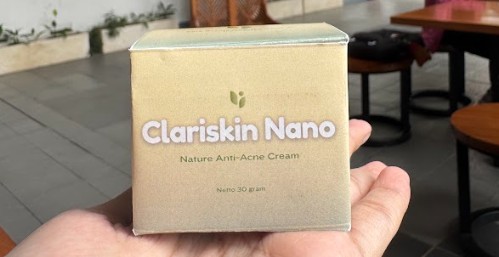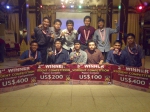Petroleum Engineering Technology and Education Contribute to an Emission-Free Indonesia
By Adi Permana
Editor Adi Permana

The event began with the singing of Indonesia Raya and was followed by remarks from Prof. Reini Wirahadikusumah, Ph.D, Rector of ITB, and Filda Yusgiantoro, Chairperson of the Purnomo Yusgiantoro Center. Dr. Airlangga Hartarto, Coordinating Minister for Economic Affairs, and Ir. Arifin Tasrif, Minister for Energy and Mineral Resources, both gave keynote speeches at the start of the morning session.
Advancement in Enhanced Oil Recovery
Following a series of opening events, the first material was presented by Prof. Ir. Taufan Marhaendrajana, with the topic Advancement in Chemical EOR Contributes to Indonesia Oil Production. Chemical EOR (enhanced oil recovery) technology, he explained, has been around for a long time. Efforts to understand the processes and mechanisms that occur, however, continue. "Oil recovery with chemical EOR is multi-mechanical and multi-variable."
He explained that because the level of dominance varies greatly from case to case, it is not acceptable to use only one parameter and one absolute number. Prof. Taufan, a Lecturer in Petroleum Engineering at ITB, emphasized that TM ITB is actively involved in chemical EOR activities in Indonesia to support increased oil production through laboratory and computational research, both independently and in collaboration with domestic and foreign institutions.
Future Petroleum Engineering Education
Panel 2 started with a look back at the history of Petroleum Engineering education in Indonesia. "According to statistics, the island of Java is home to as many as 12 petroleum engineering study programs. Meanwhile, the oil and gas-producing islands of Sumatra and Kalimantan have only two and one related study programs, respectively."
The lecturer and Chairman of the Association of Indonesian Petroleum Engineering Study Programs (IPSTEKMI) emphasized the importance of petroleum engineering education for at least ten reasons. One advantage is that gas and oil are reliable sources of backup power when other energy sources are unavailable. As the final speaker, he delivered a message for the upcoming petroleum engineering curriculum. “This study program must be adaptable and responsive to global changes and challenges. Especially now, when the world is looking for new energy sources," he concluded.
Digitalization and IoT for Upstream Industry
Dr. Ir. Amega Yasutra presented the following panel, which began with an example of IoT, notably recommendations on each user's YouTube home page. "Imagine if something like this happened in our field. Whenever there is a problem, there is advice that is as accurate and detailed as the YouTube recommendations." Of course, he added, the entire issue can be resolved quickly.
He suggests several approaches for transforming in the digital era. First, policy and standardization of digital data reporting must be prepared. Furthermore, adequate facilities should be organized, including access to data sources, software, and hardware. "Human resources, no less important, must be planned." The ITB Petroleum Engineering lecturer recommended making oil and gas datasets available to the public so that students and researchers can become acquainted with these types of datasets.
Energy Security and Net Zero 2060
Prof. Doddy Abdassah's introductory statement highlighted one of the world's major concerns about carbon dioxide emissions into the atmosphere. "While oil and gas have made human life more prosperous for over 160 years, it is undeniable that they also contribute to carbon emissions." As a result, he proposed carbon capture storage (CCS) and carbon capture utilization and storage (CCUS) as alternatives for achieving emission-free energy.
He also discussed the benefits of CCS and CCUS, including the fact that they may be utilized on both conventional and unconventional oil and gas reserves. Prof. Doddy further stated that CCS and CCUS are fundamental to attaining 1 million BPOD (barrel per day) by 2030.
Reporter: Athira Syifa PS (Postharvest Technology, 2019)
Translator: Sekar Dianwidi Bisowarno (Bioengineering, 2019)

.jpg)
.jpg)
.jpg)
.jpg)


